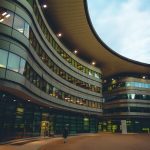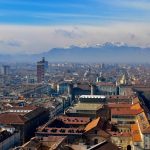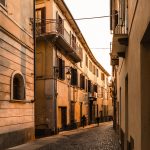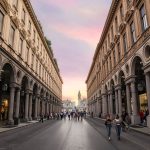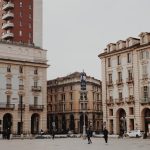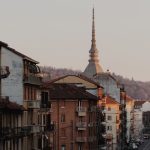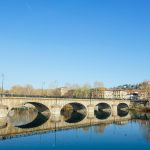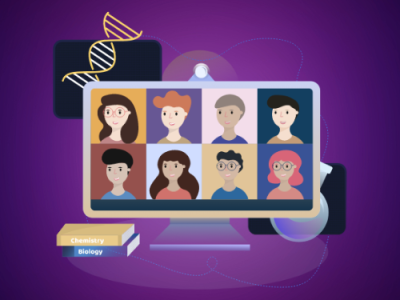Here’s everything to know about University of Turin’s Medicine and Surgery, also known as Università degli Studi di Torino. Founded in 1436, its program is ranked top 5 in Italy and top 500 in the world.
Content Quick Navigation
Medicine and Surgery at UNITR, Course Structure
| Year | Courses |
| 1st year | Introduction to Medical Biochemistry, Microscopy Lab, Basis of Human Morphology, Biochemical and Molecular Basis of Metabolism, Cell Biology and Genetics, Medical Language, Introduction to Medicine, Anatomy, Health and Safety at Work |
| 2nd year | Basic Pathology and Immunology, Basis of Human Morphology 2, Clinical Methodology and Semeiotics, Microbiology, Pathology and Pathophysiology, Physiological Basis of Human Body, Physiology of Systems |
| 3rd year | Cardiovascular and Respiratory Systems, Endocrine, Metabolic and Gastroenteric Diseases, Hematology, Infectious Diseases, and Dermatology, Medical English, Orthopedics and Traumatology, Urology |
| 4th year | Head and Neck Diseases, Nephrology, Rheumatology and Clinical Immunology, Neurology, Pathology, Pharmacology, Psychiatry |
| 5th year | Internal Medicine and Medical Genetics, Laboratory Medicine, Medical Statistics, Mother-child and Reproductive Medicine, Oncology |
| 6th year | Emergency, Final Test, General Surgery, Internal Medicine II, Hygiene, Public Health, Forensic and Occupational Medicine |
The University of Turin’s Medicine and Surgery program is a six-year course, divided into theoretical and practical courses, with an emphasis on hands-on learning. The curriculum is structured to provide students with a comprehensive understanding of the human body, its functions, and diseases that affect it. The program begins with a focus on basic science, such as biochemistry, anatomy, and physiology, and gradually progresses to more specialized fields such as pathology, pharmacology, and psychiatry.
The first year of the program introduces students to the fundamental concepts of medicine, such as human morphology, biochemistry, and genetics, and includes laboratory work to provide a practical understanding of these concepts. The second and third years focus on the study of diseases, their diagnosis, and treatment. The fourth and fifth years provide an opportunity for students to specialize in specific fields of medicine, such as oncology or neurology. The final year is dedicated to clinical rotations, allowing students to gain hands-on experience in hospitals and clinics.
Throughout the program, students are also introduced to medical ethics and patient communication skills, which are essential in providing quality medical care. The program also includes courses in medical English to prepare students for communicating with international patients and colleagues.
In conclusion, the University of Turin’s Medicine and Surgery program provides a comprehensive and well-rounded education for aspiring medical professionals. The curriculum is structured to provide a strong foundation in basic sciences and progress towards more specialized fields of medicine, with a focus on practical learning and clinical experience.
Turin IMAT Minimum Scores
| Year | Minimum Score (Non-European) | European Scores (First/Last Round) |
|---|---|---|
| 2020 | 44 | First: 53.4 / Last: 42.3 |
| 2021 | 44 | First: 45.6 / Last: 35.5 |
| 2022 | 49.9 | First: 45.1 / Last: 37.3 |
| 2023 | 49 | First: 39.0 / Last: 37.4 |
Exam Structure
Exams are an essential component of any university program, and the Medicine and Surgery program at the University of Turin is no exception. The exams in this program are predominantly oral, especially during the more advanced years. This means that students must be able to effectively communicate their understanding of the material to their professors, who will ask them questions and engage in discussions to assess their knowledge and skills.
However, exams are not the only way that students are evaluated in the program. There is also an emphasis on clinical rotations, where students gain hands-on experience in hospitals and clinics, providing care to patients under the supervision of experienced medical professionals. These rotations provide an opportunity for students to apply the knowledge and skills they have learned in the classroom to real-world scenarios, and to gain a deeper understanding of the medical profession.
It’s worth noting that the professors in the Medicine and Surgery program at the University of Turin are highly skilled and knowledgeable, and most of them speak English well. This is especially important for international students who may not be fluent in Italian, as it ensures that they can effectively communicate with their professors and fully engage with the program’s curriculum.
In conclusion, the Medicine and Surgery program at the University of Turin places a strong emphasis on practical learning and clinical experience, with exams primarily conducted through oral assessments. The program’s professors are skilled and knowledgeable, and their ability to communicate in English makes it accessible to international students. Overall, this program provides a well-rounded education that prepares students for a career in medicine and sets them on the path towards becoming skilled medical professionals.
The History of The University of Turin
The University of Turin, founded in 1404 by Pope Benedict XIII, has a long and rich history in medical education. Despite early interruptions caused by epidemics and political crises, the University persevered and established itself as an important center for medical studies in Italy.
In the 15th century, the University faced challenges with its location, and was forced to move to Chieri and later Savigliano. However, when it returned to Turin in 1436, Prince Ludovico of Savoia introduced a new order of studies which gave the government greater control over the University.
The University of Turin gained recognition as a respected institution for medical education, with notable figures such as Erasmus of Rotterdam obtaining his degree here in 1506. It also attracted scholars from France and England, who viewed Turin as a first step in Italy before attending older and more established universities.
From 1443 until 1720, the University was housed in a modest building purchased and refurbished by the City on the corner of via Doragrossa (now via Garibaldi) and via dello Studio (today’s via San Francesco d’Assisi) directly behind the Town Hall. Despite its humble beginnings, the University of Turin played a significant role in the development of medical education in Italy.
Student Expenses
As a prospective student of the Medicine and Surgery program at the University of Turin, it’s essential to consider living expenses while planning your stay. Turin is generally considered a more expensive city than smaller Italian towns like Pavia, Parma, or Padova but comparatively more affordable than Milan or Rome.
To provide a better idea of living expenses, we have compiled a table breaking down the approximate costs of some of the essentials a student may need to consider in Turin. However, these prices are subject to variation based on various factors, including location, quality, and season.
| Expense | Cost |
| Rent (one-bedroom apartment) | €500-€800 per month |
| Utilities (electricity, gas, water) | €80-€100 per month |
| Internet | €25-€40 per month |
| Public transportation (monthly pass) | €34-€50 per month |
| Meal at an inexpensive restaurant | €10-€15 |
| Cappuccino at a cafe | €1.20-€1.50 |
| Movie ticket | €7-€9 |
| Gym membership | €30-€50 per month |
Despite being relatively more expensive, living in Turin provides high-quality living with a rich cultural heritage, picturesque architecture, and delicious food and wine. However, prospective students need to plan their budget accordingly to ensure a comfortable stay in Turin during their studies.
Admission Process
The admission process for the Medicine and Surgery program at the University of Turin is highly competitive, and there are several requirements that prospective students must meet. One of these requirements is that candidates must sit the IMAT (International Medical Admissions Test) exam, which assesses their knowledge of biology, chemistry, physics, and critical reasoning. This is the primary criterion used to evaluate the qualifications of applicants to the program.
In addition to the IMAT exam, prospective students applying to the University of Turin’s Medicine and Surgery program must also pre-enroll on Turin’s website and upload their documents to request to apply to the program. The pre-enrollment process for the English-taught program opens on May 1st, 2023.
Once a candidate has completed the pre-enrollment process, they will receive instructions on how to complete their application, including submitting their exam scores and any other required documentation. The University of Turin receives a large number of applications every year, and the selection process is highly competitive. The primary criterion used to evaluate candidates is their score on the IMAT exam, and meeting the minimum requirements does not guarantee acceptance into the program. While academic performance and extracurricular activities are not considered in the selection process, candidates must still meet other requirements, such as meeting the minimum score on the IMAT exam, to be eligible for consideration.
In conclusion, admission to the Medicine and Surgery program at the University of Turin is highly competitive and requires candidates to sit the IMAT exam and complete a pre-enrollment process. The University of Turin places great importance on the IMAT exam score as the primary criterion to evaluate the qualifications of applicants to the program. Prospective students should ensure that they meet all the requirements and submit a strong application to increase their chances of being accepted into the program.
Weather and Students’ Life
When considering attending the University of Turin, prospective students may wonder about the city’s climate and lifestyle. Turin is located in the Piedmont region of Italy, close to the Alps, which makes the climate colder than other Italian cities like Rome or Florence. The winters are particularly chilly, and snow is not uncommon during this season.
Another factor to consider is that Turin is quite industrial, and the pollution levels can be high. Some students may find the air quality challenging, and there have been cases of students moving to other cities due to health concerns caused by pollution. Additionally, the air in Turin can be quite dry, which can be an issue for those with respiratory issues.
It’s also essential to note that Turin is not a touristy city and requires students to speak Italian. While many locals can speak some English, Italian is the main language spoken in the city. As such, students who are not fluent in Italian should consider enrolling in language classes to help them communicate better with locals and fully engage with the city’s culture.
Despite these factors, Turin offers a vibrant student life, with plenty of opportunities to socialize and engage in extracurricular activities. The city has a rich cultural heritage, with numerous museums, theaters, and art galleries to explore. There are also several student clubs and organizations, providing opportunities to meet new people and engage in shared interests.
In conclusion, while Turin’s climate may be colder and the city may be industrial and polluted, it still offers a rich student life with plenty of cultural and social opportunities. However, students should be prepared to speak Italian and may need to take steps to address any potential health concerns caused by the city’s air quality. Overall, Turin provides a unique study abroad experience, allowing students to immerse themselves in a new culture and gain a world-class education in medicine and surgery.
Timetable
The class timetable for the Medicine and Surgery program at the University of Turin is designed to provide students with a balanced schedule that allows them to attend classes and engage in other activities such as traineeships.
In the first year, students can expect to have four hours of class in the morning from 9 am to 1 pm, and four hours in the afternoon from 2 pm to 6 pm. However, for the following years of the program, the class schedule shifts to only four hours in the afternoon. This shift allows students to attend traineeships in the morning and engage in other extracurricular activities.
It’s worth noting that the schedule may vary depending on the specific courses that students are enrolled in, and there may be additional lab or clinical sessions outside of regular class hours. Students should expect to spend additional time studying and preparing for exams outside of class hours to ensure they succeed in the program.
Overall, the class timetable for the Medicine and Surgery program at the University of Turin is designed to provide students with a manageable schedule that allows them to balance their academic and extracurricular activities effectively. By allowing for traineeships and other experiences outside of regular class hours, the program encourages students to gain practical experience and engage with the medical community, enhancing their education and preparing them for future careers in medicine.
Scholarships
Scholarships can be an essential consideration for students who are looking to pursue higher education in Turin, Italy. While there are scholarship opportunities available, it can be challenging to secure them due to the competitive nature of the application process.
To apply for scholarships in Turin, students must typically be among the first applicants to submit their documents during the application period. This means that there can be long lines of students waiting to submit their documents, sometimes for hours or even days, to ensure they have a chance of being considered for scholarships. The application period for scholarships is also often brief, adding further pressure to students who wish to apply.
Despite the challenging application process, scholarships in Turin can be very generous. The University of Turin offers several scholarships to students, including those for international students. These scholarships can provide students with financial support to cover tuition fees, living expenses, and other educational costs.
One of the most significant scholarship opportunities in Turin is the right to free tuition while also receiving a grant of 4.5-5K EUR. This scholarship program is open to students who meet specific academic requirements, and it can be an excellent way for students to reduce the financial burden of their education while also gaining valuable educational and career opportunities.
Summary
his article provides a comprehensive guide to studying Medicine and Surgery at the University of Turin. The University of Turin is well known in Italy and ranks in the top five universities for medicine and surgery. The curriculum is structured to provide students with a comprehensive education in medicine, covering basic and advanced topics in human biology and pathology. The program’s admission process requires candidates to sit the IMAT exam and complete a pre-enrollment process on Turin’s website.
The city of Turin has a colder climate than other Italian cities due to its proximity to the Alps, and it can be quite industrial and polluted. Students should be prepared to speak Italian, as it is not a touristy city. However, Turin offers a vibrant student life, with numerous opportunities to engage in extracurricular activities.
The class timetable is designed to provide students with a manageable schedule, allowing them to balance their academic and extracurricular activities effectively. Scholarships in Turin can be generous, but the application process is competitive and requires students to be among the first to submit their documents.
In summary, the University of Turin’s Medicine and Surgery program provides students with a comprehensive education in medicine, and the city of Turin offers a unique student life experience. Prospective students should be prepared for a competitive admission process, a colder climate, and a city that requires them to speak Italian. However, for those who are successful, the program can provide them with opportunities to gain practical experience and excel in their future careers in medicine.




